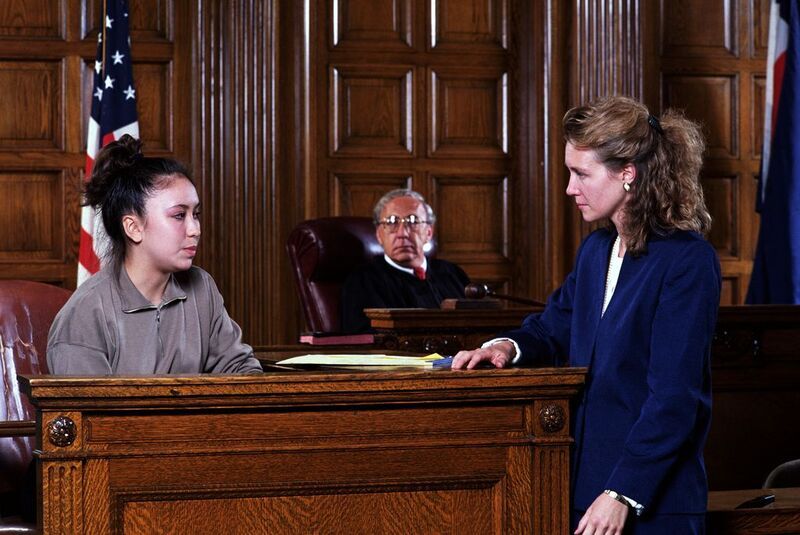When you’re facing criminal charges, criminal defense attorneys become your most crucial ally in navigating the complex legal system. Criminal defense attorneys specialize in defending individuals and organizations charged with criminal activity, striving to minimize the harsh consequences of an arrest. They serve as the first line of protection between you and a system that can often feel overwhelming.
As your dedicated advocates, criminal defense lawyers work tirelessly to ensure you receive fair treatment throughout the legal process. They don’t just represent you during trial proceedings—many criminal defense lawyers can help even before charges are filed, especially if you believe you’re under investigation. In fact, the satisfaction of a career in criminal law comes from playing a crucial role in upholding justice, protecting individual rights and freedoms, and ensuring a fair legal system.
This comprehensive guide will explore what criminal defense attorneys do, how they build your case, their crucial courtroom functions, and their ongoing role beyond the trial. Whether you’re currently facing charges or simply want to understand how these legal professionals work to protect your rights, this article will provide the essential information you need.
What is a Criminal Defense Attorney and Why They Matter
Understanding the role of a defense attorney
At their core, criminal defense attorneys serve as advocates for individuals and organizations facing criminal charges. These legal professionals stand as essential components of the justice system, ensuring that everyone receives fair treatment throughout legal proceedings.
A criminal defense attorney works as your dedicated representative, not your alter-ego, using their legal expertise to challenge the prosecution’s case and scrutinize every detail for inconsistencies or rights violations. Their responsibilities extend beyond mere representation—they provide guidance through the complex legal system while developing strategic defenses tailored to your specific circumstances.
How they protect your legal rights
Criminal defense attorneys function as guardians of constitutional rights, protecting you from potential abuses of power. From the moment of arrest, they ensure your Miranda rights are upheld and that law enforcement adheres to proper procedures. Any deviation from these protocols can become grounds for dismissing evidence or even the entire case.
Additionally, these lawyers meticulously review all evidence presented by the prosecution, looking for irregularities or indications that it might have been improperly obtained. Through strategic legal maneuvers, they can challenge the admissibility of evidence, potentially weakening the prosecution’s case.
Public defenders vs. private criminal lawyers
The choice between public defenders and private criminal defense attorneys represents an important decision with practical implications:
Public defenders:
- Court-appointed for those unable to afford legal representation
- Often manage substantial caseloads (dozens of felony cases annually)
- Hold the same legal licenses and must meet identical professional standards as private attorneys
- Typically develop extensive knowledge of local court procedures
Conversely, private attorneys are hired directly by clients and generally maintain smaller caseloads, allowing for more individualized attention. While public defenders are provided at no cost to qualifying defendants, private representation typically involves various fee structures, including hourly rates, flat fees, or upfront retainers.
Nevertheless, both types of criminal defense attorneys share the same fundamental responsibility: protecting your rights and working toward the most favorable outcome possible for your specific situation.
How Criminal Defense Attorneys Build a Case
How Criminal Defense Attorneys Build a Case
Building a strong defense requires meticulous preparation and strategic thinking. Criminal defense attorneys approach each case systematically, analyzing every detail to create the most effective defense strategy possible.
Reviewing police reports and evidence
The foundation of any defense begins with a comprehensive examination of all available documentation. Criminal defense attorneys meticulously review police reports, searching for inconsistencies or gaps that could benefit your case. This investigation phase involves collecting relevant facts and conducting thorough research to build a solid foundation. Furthermore, attorneys carefully evaluate each piece of evidence to assess its credibility, relevance, and impact on the case, ensuring only strong and reliable information stands against you.
Spotting procedural errors and rights violations
Experienced defense lawyers excel at identifying procedural mistakes that can dramatically alter case outcomes. They verify that proper procedures were followed during arrest and evidence collection, looking for violations of constitutional rights. Subsequently, they can file motions to suppress evidence that was improperly obtained or contaminated, potentially weakening the prosecution’s case. Criminal defense attorneys understand which errors are serious enough to warrant dismissal and how to effectively argue these points in court.
Working with expert witnesses and investigators
Crafting a compelling defense often requires specialized knowledge beyond legal expertise. Consequently, defense attorneys collaborate with expert witnesses who bring credibility and specialized insights to complex issues. These professionals can challenge prosecution evidence, offering alternative explanations that create reasonable doubt. Moreover, criminal defense investigators help uncover crucial information by interviewing witnesses, visiting crime scenes, and identifying inconsistencies in police documentation. Through this collaborative approach, your attorney builds a comprehensive defense strategy designed to protect your rights and secure the most favorable outcome possible.
Inside the Courtroom: What Criminal Defense Lawyers Do

Image Source: Petersen Criminal Defense Law
Inside the Courtroom: What Criminal Defense Lawyers Do
The courtroom becomes the ultimate arena where criminal defense attorneys demonstrate their advocacy skills. First and foremost, their performance during trial proceedings can significantly impact the outcome of your case.
Opening statements and presenting evidence
Criminal defense attorneys begin trials with carefully crafted opening statements that outline the facts favorable to your case. Unlike closing arguments, these statements must avoid explicit argumentation while still setting the stage for reasonable doubt. Throughout this critical first impression, your attorney introduces key witnesses and previews evidence that supports your defense narrative.
When presenting evidence, criminal defense attorneys must ensure all exhibits are relevant, authentic, and admissible under court rules. Notably, they strategically decide which evidence strengthens your case while anticipating and countering the prosecution’s arguments.
Cross-examining witnesses
Cross-examination represents one of the most powerful tools in a criminal defense attorney’s arsenal. Through strategic questioning, they test witness credibility, expose inconsistencies, and uncover favorable information even from hostile witnesses. Indeed, effective cross-examination involves asking leading questions that limit witnesses’ ability to elaborate beyond “yes” or “no” answers, maintaining tight control over testimony.
Negotiating plea deals when necessary
As a result of various practical considerations, approximately 90-95% of criminal cases resolve through plea bargaining rather than trial. Criminal defense attorneys negotiate these agreements, which typically involve:
- Charge bargaining (pleading to lesser offenses)
- Sentence bargaining (reduced penalties)
- Count bargaining (dropping some charges)
Above all, your attorney ensures any plea agreement serves your best interests, potentially avoiding harsher punishment while sparing the uncertainty of trial.
Beyond the Trial: The Ongoing Role of a Defense Attorney
Image Source: Jordan Rickards Law Office
Beyond the Trial: The Ongoing Role of a Defense Attorney
The relationship with your criminal defense attorneys often extends far beyond the courtroom verdict. Their responsibilities continue long after the trial concludes, ensuring your rights remain protected throughout the entire legal process.
Client counseling and legal education
Criminal defense attorneys serve as educators, helping clients fully understand the complexities of their cases. This counseling relationship becomes particularly important during critical decision-making moments, such as whether to accept plea bargains or pursue appeals. Initially, attorneys must thoroughly explain all legal options while respecting client autonomy. Experienced defense lawyers also recognize when a client’s arrest might represent a potential turning point for addressing underlying issues like substance abuse.
Post-trial motions and appeals
Following a verdict, several crucial legal options remain available:
- Motion for a new trial – Requests the court vacate judgment based on legal errors or misconduct
- Motion for judgment of acquittal – Asks court to set aside jury verdict
- Motion to correct a sentence – Often used to address clerical errors
If these motions fail, appeals become the next avenue. Unlike trials, appeals focus specifically on legal errors rather than retrying facts. Defense attorneys continue representation during this critical phase, identifying potential grounds like juror misconduct or insufficient evidence.
Helping clients understand sentencing and outcomes
Throughout sentencing, criminal defense attorneys explain potential penalties while advocating for mitigating factors such as lack of criminal record or genuine remorse. Ultimately, they help clients navigate restitution requirements and prepare for potential collateral consequences of conviction.
Conclusion
The legal system often appears intimidating, especially when you face criminal charges. Criminal defense attorneys serve as your shield against this complex machinery, fighting to preserve your rights and freedoms. Throughout this guide, we’ve explored how these legal professionals work tirelessly as your advocates from the moment of arrest through trial proceedings and beyond.
First and foremost, criminal defense attorneys stand as guardians of constitutional rights, challenging improper evidence collection and ensuring law enforcement follows proper protocols. Additionally, they build robust defenses by meticulously examining police reports, identifying procedural errors, and collaborating with expert witnesses to create reasonable doubt.
Inside the courtroom, your criminal defense attorney transforms into a strategic advocate, delivering compelling opening statements, cross-examining witnesses, and presenting evidence that supports your case. When appropriate, they negotiate plea deals that might spare you from harsher consequences while still protecting your interests.
Certainly, their work doesn’t end with a verdict. These legal professionals continue supporting you through post-trial motions, appeals, and the sentencing process. They help you understand potential penalties and navigate the aftermath of your case, regardless of the outcome.
Whether you choose a public defender or private counsel, criminal defense attorneys remain your most valuable asset when facing criminal charges. They ensure the scales of justice remain balanced, providing expertise and guidance when you need it most. The right attorney doesn’t just represent you in court—they empower you with knowledge, protect your constitutional rights, and fight for the most favorable outcome possible in your unique situation.
FAQs
Q1. What is the primary role of a criminal defense attorney?
A criminal defense attorney serves as an advocate for individuals facing criminal charges. They protect their clients’ legal rights, build a strong defense strategy, and work to secure the most favorable outcome possible throughout the legal process.
Q2. How do criminal defense lawyers build a case?
Criminal defense attorneys build cases by meticulously reviewing police reports and evidence, identifying procedural errors or rights violations, and collaborating with expert witnesses and investigators. They analyze every detail to create an effective defense strategy.
Q3. What happens if I can’t afford a private criminal defense attorney?
If you cannot afford a private attorney, the court will appoint a public defender to represent you. Public defenders are licensed attorneys who must meet the same professional standards as private lawyers and often have extensive knowledge of local court procedures.
Q4. Do criminal defense attorneys only represent clients during trials?
No, criminal defense attorneys’ roles extend beyond trials. They can assist even before charges are filed, negotiate plea deals, file post-trial motions, handle appeals, and help clients understand sentencing and potential outcomes of their cases.
Q5. Why is it important to have a criminal defense attorney?
Having a criminal defense attorney is crucial because they ensure fair treatment throughout the legal process, protect your constitutional rights, challenge evidence, negotiate with prosecutors, and provide expert guidance in navigating the complex criminal justice system.

Leave a Reply